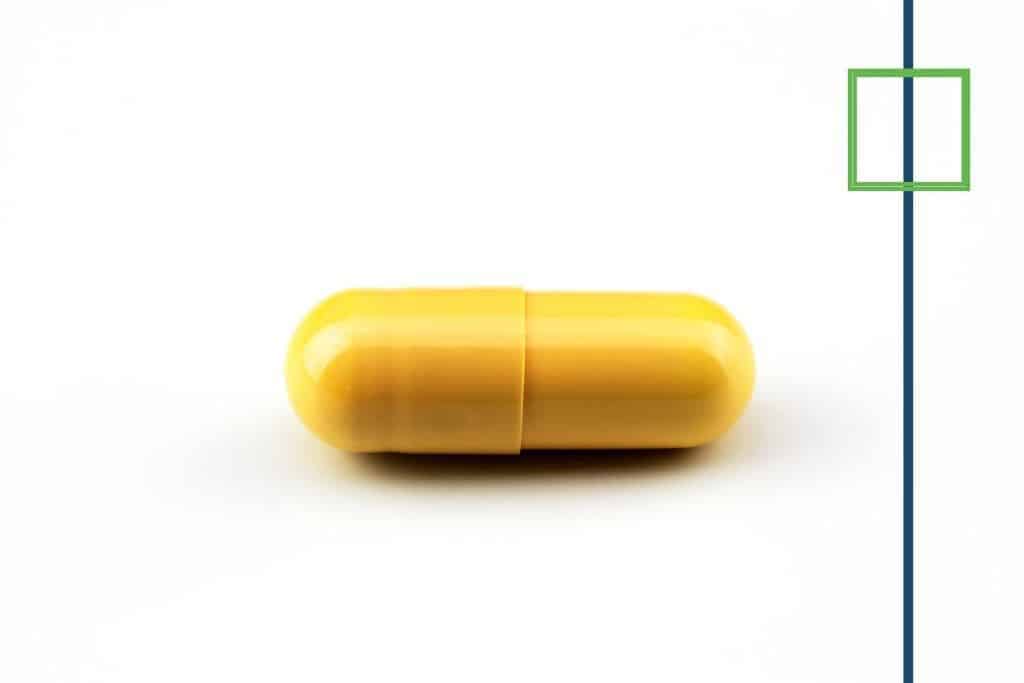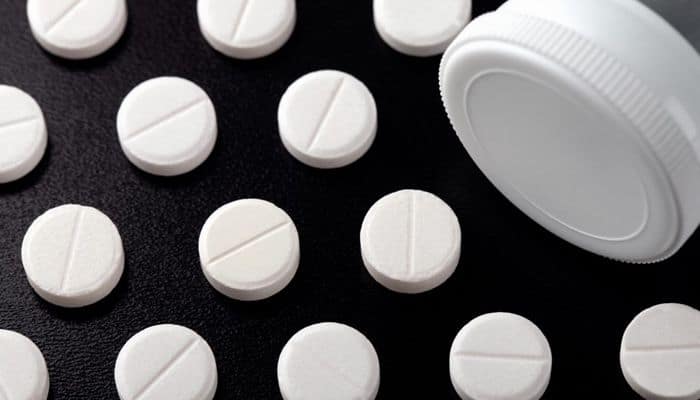What is Ketamine?
Ketamine (brand name: Ketalar) is a dissociative injected anesthetic (blocks sensory perception) that has been available by prescription in the U.S. since the 1970s for human and veterinary uses. Esketamine (Spravato), the S-enantiomer of racemic ketamine, was approved in 2019 for treatment-resistant depression and is approved for use in depressed patients with acute suicidal ideation or behavior. Ketaset is the brand name for surgical anesthesia used by veterinarians.
Dissociative drugs can lead to distortion of sights, colors, sounds, self, and one’s environment. Ketamine is available in a clear liquid or off-white powder form for intravenous injection or as a nasal spray. Examples of other dissociative drugs include phencyclidine (PCP) and dextromethorphan (DXM).
In the U.S., ketamine is classified as a schedule III drug under the DEA Controlled Substances Act; however, it is not classified as an opioid (narcotic) or barbiturate.


Get Your Life Back
Find Hope & Recovery. Get Safe Comfortable Detox, Addiction Rehab & Dual Diagnosis High-Quality Care.
Hotline(844) 597-1011Is ketamine addictive?
Ketamine addiction is the physical or psychological tolerance that develops when a user takes this drug repeatedly. Such patience makes the user crave the drug, want more of the drug, and do more of the drug. This addiction can lead to many potential consequences and side effects, including withdrawal symptoms, long-term side effects, permanent psychosis, or other problems. While most psychedelic drugs such as Ketamine are not widely considered addictive, this drug can cause severe dependence that requires a professional rehab treatment program if the user decides to quit.
Ketamine is an anesthetic used for both humans and animals, particularly in emergency or trauma situations. But it is often abused for its dissociative effects, such as auditory and visual distortions. Those who abuse Ketamine usually snort it, but it can also be injected. Ketamine is a dissociative anesthetic drug approved for use in animal and human surgery. The drug’s therapeutic purpose is to induce unconsciousness, numbness, and memory loss while maintaining adequate blood pressure and respiratory reflexes.
People began to use Ketamine recreationally in the late 1960s. It is now classified as a Schedule III controlled substance, which means that it has the potential for abuse and dependence. People tend to abuse Ketamine for the dissociative effects, characterized by floating and dream-like sensations at low doses and hallucinations and near-death or spiritual experiences at high doses. Ketamine is often used in a binge pattern to maintain the high over an extended period, which can cause tolerance to build quickly. Users also frequently combine it with other drugs.
Ketamine Dosage
| Dose | Route |
| 75 to 125 mg | Intramuscular (IM) or subcutaneous injection |
| 60 to 250 mg | Insufflation (intranasal or “snorting”) |
| 50 to 100 mg | Intravenously (IV) |
| 200 to 300 mg | Orally (by mouth) |
Get Help. Get Better. Get Your Life Back.
Searching for Accredited Drug and Alcohol Rehab Centers Near You?
Even if you have failed previously and relapsed, or are in the middle of a difficult crisis, we stand ready to support you. Our trusted behavioral health specialists will not give up on you. When you feel ready or just want someone to speak to about therapy alternatives to change your life call us. Even if we cannot assist you, we will lead you to wherever you can get support. There is no obligation. Call our hotline today.
(844) 597-1011How Long Does Ketamine Stay In Your System? Factors that Influence Ketamine Metabolism
How long does ketamine stay in your system? This depends on your body, how much you use ketamine, and if you’re taking other drugs as well. Factors that influence ketamine metabolism include:
Age & Health
Younger people tend to have faster metabolisms and can process drugs more quickly than older people. They’re also likely to have healthier bodies that are more efficient at drug metabolism. However, a young person in poor health may have more difficulty processing ketamine than a healthy older person, especially if their kidneys or liver are damaged.
Body Mass & Body Fat
If a person with a small body mass and a person with a large body mass take the same amount of ketamine, the larger person will metabolize it faster because it’s a smaller proportion of their body mass. Ketamine is stored in body fat, so a larger person may process it more slowly than a smaller person if their body mass is made up largely of fat.

Basal Metabolic Rate (BMR)
Your basal metabolic rate (BMR) is how much energy you burn while resting. People with active lifestyles tend to have a higher BMR, meaning they have a faster metabolism. That can help you process ketamine more quickly, whereas a low BMR could slow down drug metabolism.
Genetics
You may process ketamine more slowly if you have certain genes that slow drug metabolism, specifically affecting kidney or liver function.
Liver & Kidney Function
The liver and kidneys are responsible for getting ketamine out of your system. If you have impaired liver or kidney function, that can make it take longer to process.
Hydration
Since most of the ketamine you take will be excreted through urine, drinking more water may help speed up the process. However, it’s not likely to make enough of a difference to alter the results of a urine test if you abuse ketamine.
How Much Ketamine You Take (Dosage)
A higher dose of ketamine will take longer for your body to process. It’s a lipophilic drug, so if you take a high dose, some of it may be stored in your body fat to be distributed later.
How Often You Take Ketamine (Frequency)
If you abuse ketamine, you may take another dose before the last one has left your system. Repeated, overlapping ketamine use can cause a build-up of the drug. Each time you take more, it makes the metabolic process longer.
First-class Facilities & Amenities
World-class High-Quality Addiction & Mental Health Rehabilitation Treatment
Rehab Centers TourRenowned Addiction Centers. Serene Private Facilities. Inpatient rehab programs vary.
Addiction Helpline(844) 597-1011Proven recovery success experience, backed by a Team w/ History of:
15+
Years of Unified Experience
100s
5-Star Reviews Across Our Centers
10K
Recovery Success Stories Across Our Network
- Low Patient to Therapist Ratio
- Onsite Medical Detox Center
- Comprehensive Dual-Diagnosis Treatment
- Complimentary Family & Alumni Programs
- Coaching, Recovery & Personal Development Events
What is The Half-Life of Ketamine?
Ketamine has a half-life of 2.5 to 3 hours in adults and 1 to 2 hours in children. Half-life is how long it takes for half of a substance to be processed and excreted by the body. While this window is relatively short, ketamine and its metabolites (norketamine and dehydronorketamine) may be found in your system for a much longer time.
Urine Test for Ketamine
A urine test can detect ketamine for up to 2 weeks. While most of the drug is out of your blood after the first day, its metabolites may be found in urine for much longer. Taking a urine sample is the most common form of drug testing for ketamine because it’s inexpensive, not invasive, and has a large window of detection.
Ketamine Blood Tests
A blood test can detect ketamine for up to 3 days but it’s most effective within the first 24 hours. Blood testing isn’t a common method of drug testing for ketamine because of the high cost, invasiveness, and short detection window.
Ketamine Saliva Tests
A saliva test can detect ketamine for 24 hours. Saliva tests aren’t often used to test for ketamine because they cost more than a urine test and have a small window of detection.
Hair Follicle Test for Ketamine
A hair test can detect ketamine in hair follicles for several months after use. Hair tests may be used to determine if someone has been abusing ketamine over time.
Signs And Symptoms Of Addiction
A Ketamine addiction (diagnosed as Ketamine use disorder) is defined as a maladaptive pattern of Ketamine use that causes distress in the individual’s life. The signs and symptoms include:
- Ketamine is taken in amounts that exceed or for lengths of time more extraordinary than initially intended
- Inability to quit or cut back on Ketamine use
- Spending an excessive amount of time getting and using Ketamine and recovering from its adverse effects
- Intense cravings to use Ketamine
- Continuous Ketamine use resulting in-home and work ramifications
- Continuous Ketamine use regardless of interpersonal or social difficulties exacerbated or caused by the drug
- Reduced involvement in occupational, social, or recreational activities
- Repeated Ketamine use in dangerous situations, such as driving a car
- Continued Ketamine use despite mental and physical problems worsened or caused by the substance
- Tolerance is more Ketamine is needed to “get high,” and the same amount of Ketamine elicits a diminished effect or intoxication
An individual must exhibit at least 2 of the above symptoms within a 1-year period to be diagnosed with an addiction to Ketamine.
World-class, Accredited, 5-Star Reviewed, Effective Addiction & Mental Health Programs. Complete Behavioral Health Inpatient Rehab, Detox plus Co-occuring Disorders Therapy.
CALL(844) 597-1011End the Addiction Pain. End the Emotional Rollercoaster. Get Your Life Back. Start Drug, Alcohol & Dual Diagnosis Mental Health Treatment Now. Get Free No-obligation Guidance by Substance Abuse Specialists Who Understand Addiction & Mental Health Recovery & Know How to Help.
Ketamine Addiction Treatment
Ketamine addiction treatment programs will provide a person with the resources and education to detox and live a drug-free life. Ketamine addiction is a chronic disease that will take time and effort to heal, but it can be treated.
In a Ketamine addiction treatment program, a person will begin to detox from the drug and be provided with medical supervision to ensure a safe detox. In addition, most treatment programs will provide s person with medication to help them with the physical withdrawals, if necessary. Furthermore, a Ketamine addiction treatment program will give a client therapy to get through the emotional turmoil from their drug addiction and regain control of their thoughts and feelings without the influence of the drug.
Ketamine addiction treatment programs are the most effective way for people to overcome their addictions. A person will have the help and support they need and the proper resources and professionals to conquer their addiction through the program.

Components Of Drug Treatment
- Detoxification: The first step in the addict’s journey toward sobriety is eliminating the individual’s body’s drugs.
- Therapy & Counseling: Once the detoxification process has begun, it is essential to narrow down the reasons why the individual started to use drugs in the first place. To determine this, the individual will be placed in a group or individual counseling session to help narrow down the cause.
- Coping Mechanisms: As the client continues their counseling, they move into the next stage of recovery. A successful treatment program will teach them how to handle their problems without using drugs. Counselors or therapists will give the client the strategies to maintain a drug-free life after the program has been completed.
- Ongoing Support: Once the client has been through their detoxification and counseling, they will be able to return to their life. Depending on the program, the individual will attend weekly group meetings, have a sponsor, or have mandated individual sessions during this final stage.
Reclaim Your Life From Ketamine Addiction
Ketamine addiction is a serious disease that should not be taken lightly. We Level Up treatment program & detox center can provide you, or someone you love, the tools to recover from addiction and manage cocaine side effects with professional and safe treatment. Feel free to call us to speak with one of our counselors. We can inform you about this condition by giving you relevant information. Our specialists know what you are going through. Please know that each call is private and confidential.
Experience Transformative Recovery at We Level Up Treatment Centers.
See our authentic success stories. Get inspired. Get the help you deserve.
Start a New Life
Begin with a free call to an addiction & behavioral health treatment advisor. Learn more about our dual-diagnosis programs. The We Level Up Treatment Center Network delivers recovery programs that vary by each treatment facility. Call to learn more.
- Personalized Care
- Caring Accountable Staff
- World-class Amenities
- Licensed & Accredited
- Renowned w/ 100s 5-Star Reviews
We’ll Call You
Sources
[3] PubChem – Ketamine


